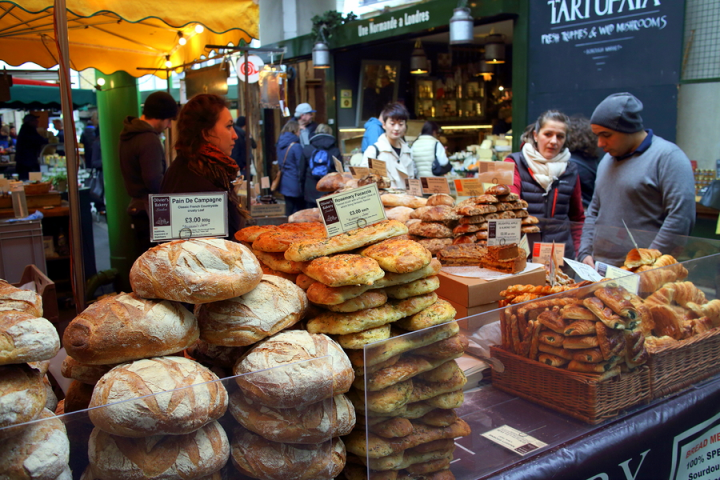CTH Connections Newsletter – March 2017


PLAGIARISM IN UNIVERSITIES COULD BE MADE ILLEGAL IN THE UK
‘I would prefer even to fail with honour than to win by cheating.’ – Sophocles
Commendable words from the ancient Greek, Sophocles; words that ring true throughout history. There’s always been a certain romance with idea of a gracious defeat or triumph off of the back of your own hard work and grit. Being fair and just are supposed to go with societies moral code. So when a report was published regarding ‘20,000 university students buying essays and dissertations’, it was doubtful that the general public were not going to be up in arms. However, in January, when the news had broke claiming a new UK government proposal was recommending that university plagiarism should be made illegal, it was still a shock. The proposal suggests that it is the government’s aim to remove the process that these 20,000+ students are using to plagiarise - 'Essay mills'.
Typically, plagiarism is not illegal, it only becomes illegal when it infringes on copyrights laws.
From a university standpoint, students who plagiarise even in extreme cases would have there work unmarked and would therefore score a zero or be suspended from the university. However, these new proposals suggest that students who plagiarise should be given a criminal record. The strong line being taken by the government is to act a strong deterrent to those buying essays and to the 'fraudulent essay industry' that supplies these students. The extremity of the punishment is a topic for discussion, however, the issue of plagiarism is something that will need to be tackled. Leading academics and politicians have highlighted the negative effect of the fraudulent essay industry and aim to outlaw it. The industry allows for students to be able to buy essays written by another party from companies and therefore virtually pay their way to a top grade.
Government officials have highlighted other countries such as New Zealand as an example to follow, as they hold the practice to be illegal. Officials feel this is the way forward in order to restore the quality of the education being provided. Hopefully more news is to come from these proposals and a clearer picture will develop over time. However, some action is likely to take place as a deterrent for all parties involved in the scheme.
At CTH we aim to get our students ready for the working world by trying to enhance their research, referencing and evidence gathering skills. This is done by upholding the use of Harvard Referencing. Referencing your work eliminates the idea of plagiarism and is good practice in the future. CTH has a variety of resources to help with this, for example our Harvard Referencing Guide on our Study Resources area. So access this you will need to be a CTH Member.
Read how to become a CTH Member here: http://www.cthawards.com/membership/

LONDON FOOD MONTH: A ROLLING BUFFET OF FOOD FUN
Culinary capitals; the food havens of the world. It’s not the first time we’ve discussed culinary capitals on the CTH Connections forum, and it won’t be the last; think back to when we featured the city of Lisbon in our September 2016 Edition. This time, the lights are on our very own London town, who celebrates London Food Month in the capital this summer. What is London Food Month and why is it launching in 2017 you might ask. Keep on reading to find out more about this gastronomic event being dubbed a ‘rolling buffet of food fun’.
There may not be a universal language that binds the world, however, something that does bind us is the universal appreciation of food. London being a metropolis of different cultures and ethnicity can boast to harbour a smorgasbord of different food. From breakfast, lunch and dinner, the city offers a cuisine to match your palate or guide you to a new taste. For this very reason, it’s the London newspaper publisher, ESI Media's aim to shine a light on the capital's culinary side through the London Food Month.
The London Food Month aims to both fill your stomach as well as fill your mind. The city's most popular areas are set to offer banquets; supper clubs, Michelin starred chefs, celebrities and performances; running for 24 hours a day for a whole month. In addition, in collaboration with The Felix Project, London Food Month aims to teach and raise awareness on food waste and responsibility. There's going to be some exciting times for the London food scene this coming June; make sure that you don't miss out on an opportunity to be a part of it.
Keep up with all the news about the upcoming event here: http://www.standard.co.uk/topic/london-food-month

INTERNSHIPS: INTERNING THE RIGHT WAY
At times the industry and not just in hospitality and tourism, has failed to find ways to bridge the gap between formal education and the working environment. This could be down to schools not exposing students to adequate practical skills; and/or companies not giving graduates a substantial opportunity. Regardless of the reasons, problems can occur for new graduates trying to fill positions in the industries that they have been trained for. One would point to apprenticeships and internships as the solution to this, as they can provide a number of incentives. Being able to learn on the job and exhibit what you've learned in a real working environment is a useful thing for learners. However, an internship is only useful when it is properly understood by the intern. Knowing what to expect is key so an intern can fully take advantage of his position. Therefore, it would seem important to know what organisations want from an intern, so in turn they can understand what to expect.
Though some of the skills required from an intern will be particular to the role they are interning for, there are skills that are sought after by all employers. Working with customers is almost certainly expected in the hospitality and therefore soft skills are crucial in this area. Being able to communicate and engage with people with confidence is a very useful skill. Customers appreciate people who both look and act the part; but you can only do this if you understanding your role and what is expected. Show you understand the role by doing your research, don't look like an intern. Another skill that people may sometimes misunderstand, as Dr. Peter Ricci has stated, is the ability of ‘exploration combined with a can-do attitude’. An intern is not meant to be babied, but will be guided, they must show independence and drive in their role. This can make the difference between someone looking for their next opportunity and another who is looking forward to the job they’ve just been offered.
Internships and apprenticeships can turn into a prosperous opportunities for candidates as well as employers. With the right structure and a consideration for the expectations that are in place, a valuable experience can develop. Showing a level of confidence, composure and a willingness to learn is helpful for candidates. Understanding how to carry yourself during your internship and understanding your role is also valuable. Show a level of professionalism and forward thinking that makes you seamlessly integrate into the team. Showing this will demonstrate to your employers that you can carry yourself in the way that is required. For example, noting something that customers frequently have an issue with and recommending a change is a good practice. Hopefully, you've gained a glimpse into how to be a good intern. Look out in future editions of CTH Connection to understand some of the ways to look for internships and spot good opportunities out there.

THE CHANGING TREND OF THE TERM 'LUXURY TRAVEL'
Long has the term ‘luxury travel’ been associated with gold taps, large, opulent hotels and designer luggage. But there has been a significant shift in what people are searching for when looking for luxury whilst travelling. The term ‘Luxury Travel’ now nods towards the buzzwords ‘authentic’, ‘unique’, ‘experience’ and ’emotional value’ and less about the ‘possessions’.
The search is on for small, unique and personal hotels and services. Experiences that give an authentic feel about the place you are visiting and immersing yourself into the local community, whether this is sampling local food or accommodation surrounded by the natural environment. People are looking for customised local experiences and adventures in places that are not easily accessible. The trend is toward simplicity and family run hotels that can give you that authentic experience.
The trend is toward simplicity and
family run hotels that can give you that authentic experience. Larger hotel groups are now also looking to create smaller boutique experiences. You only have to look online to find a multitude of boutique hotel booking sites. Many of the smaller luxury accommodations are concerned about sustainability and the local environment. They purchase interiors from the surrounding environment and food that is locally sourced to give as an authentic experience as possible.
There are also destinations that have a ‘deadline date’ that are on the radar. For example. The Maldives are said to have a rising sea level and if it continues at the current rate they will lose 77% of their land area within the next 80 years. And since the death of Fidel Castro, Cuba is the place to go for many before it changes and modernises. Although change is already happening you can still feel the essence of the 1950’s when visiting.
As the search is on for that once in a lifetime experience, the question remains about how to find and book them. Travel agents are now back on the menu as people realise the importance of booking with a reputable agent who will go out of their way to give you the experience and service as well as their expertise if anything doesn’t quite go to plan.
The hope is that with the shift in Luxury Travel towards being more conscious of the environment and ‘going local’ whilst searching for authenticity, we are making a change to the world that can only be for the better.
The quote ‘Travel is the only thing you buy that makes you richer’ couldn’t be more relevant.

HOW DOES THE CUSTOMER INFLUENCE THE HOSPITALITY INDUSTRY?
Most people would have heard the phrase ‘the customer is king’ at some stage in life; whether that be in a working capacity or otherwise. The phrase ‘the customer is king’ derives from the perception that the customer is a key component in business. This phrase is all the more accentuated in the hospitality industry. In some industries, the strategic objective may be influenced more by the advancement in technology such as with the mobile phone industry. However, in the hospitality industry, guests have more of an influence on this process. This of course is due to the fact that the hospitality industry is in the service sector. Regardless of this, the customer's influence should not be undermined.
Within the last few years there’s been a common perception and practice that hotels have to do a lot more than simply offering a bed and a shower to attract customers. This shift has been driven by the increased power of the customer. Unlike with luxury hotel brands whereby loyalty schemes can produce repeat customers, in the mass market where customers are fickle, hotels have to step up their game. For example, a hotel not offering Wi-Fi, free or otherwise would be frowned upon. Even with a standard hotel, you would at least expect a small TV. This is where hotels must be careful. Being aware of customer perceptions is key to a hotels business if they want to keep ahead of the trend.
It’s never good for a company to lose touch with its customer base. With customer reviews being more visible and social media's increased influence, customers have already made up their mind on what they’re willing to pay for before they’ve even made contact with the hotel. But if other customers can see this, so too can the hotels. If hotels engage with customers more, it can ensure that they are meeting the standard expected by the market. This in turn will allow them to keep the pace with their competitors and even outpace them. As of now customers hold a significant balance of power that mass marketed hotels must acknowledge, whether this changes, only time will tell.

CAN YOU COOK IT?
Celebrity chef and winner of the James Beard Award (often dubbed 'The Oscars of Food'), Tory Miller recently held a cooking demo as part of a programme called the ‘Chef Series’. The series showcases a variety of things, but what piqued our interest were some discussion points raised by Tory Miller. He raised three points of interest during his discussion, which included; the need to build relationships, investing in your craft and using the art of listening. These discussion points highlighted some very interested things in regards to the life of a chef and how to be a better one. They were mostly aimed at up-and-coming chefs; therefore, we hope our culinary students are taking note as they continue to read.
The first point raised by Miller was the need to build relationships. Miller owns four restaurants, but one thing that is common between them is the focus on seasonal foods.
This focus means that a good rapport with the local farmers is important. Having a good relationship with the farmers means Miller has access to a supply of fresh produce which in turn builds a good relationship for the betterment of his restaurants. Trainees chefs probably won’t own four restaurants, let alone one; however, there’s still an important lesson here. Ever heard the phrase, ‘it’s not what you know, it’s who you know’, having a healthy rapport with other members of staff can allow you to pick up different skills and can put you in good stead when trying to advance your role.
Investing in your craft is also important. Miller raised this point saying frankly, ‘If you’re a chef today and you do not buy quality, local food, you’re not a good chef’. His comments were made in regards to fine dining; however, the idea is true for all chefs, investing adequately in your craft is a part of the process. Buying quality ingredients can make the difference.
Making sure that you buy good quality cutting knives or good quality ingredients can improve the overall class of the meal that you are trying to produce.
Lastly Miller also made the point that listening and taking on board advise is also helpful whether you are just starting off or are experienced. Miller made the point that listening in the kitchen is useful in two ways; listening to other people is one way and the other is listening to yourself. Listening to others, Miller feels is the best way to learn. By listening you can polish your craft and adapt your skills in the right ways. Miller talking passionately about cooking also noted that ‘real chefs cook with their soul’, ‘they put their heart into it’. A recipe at the end of the day is just a list of instructions, listening to yourself in the kitchen can set your meals apart. Showing confidence is yourself and your ability means things in the kitchen will come naturally which can often produce a better outcome.

GAIN A CHANCE TO FEATURE ON THE CTH WEBSITE
For some time now, CTH has been getting our CTH students more involved by offering them different ways to tell their story. One way we do this is through our student interviews. Through this we allow our students to gain exposure and show the world what they've gone through along their journey to ultimately achieve their CTH qualification and/or first jobs. We then feature them on our website as part of our CTH News area. See an example of when Tanvir Ahmed had a chance to tell his story here.
To be a part of this process, email [email protected] and express your interest and one our team will be in contact with you.
THANK YOU FOR READING
To make sure you get the next edition of CTH Connections Newsletter make sure you email [email protected] with your:
- First name
- Last name
- And how you found out about us
